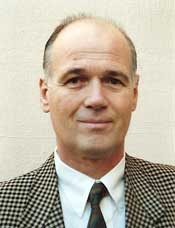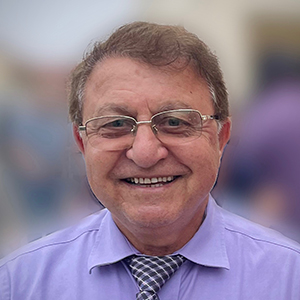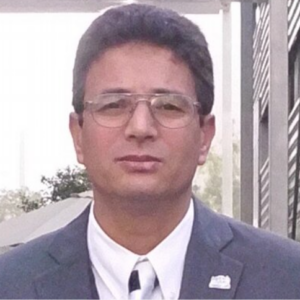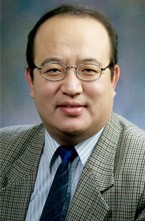RESEARCH KEYNOTE SERIES

Prof. Jozo Dujmovic
(San Francisco State University, USA)
Bio: Jozo Dujmović received the Dipl. Ing. degree in electronic and telecommunication engineering, and the M.Sc. and Sc.D. degrees in computer engineering, all from the University of Belgrade, Serbia. Since 1994 he has been Professor of Computer Science at San Francisco State University, where he served as Chair of Computer Science Department from 1998 to 2002. Before his current position with San Francisco State University, he was the Professor of computer science with the University of Belgrade; the University of Florida, Gainesville, FL, USA; the University of Texas, Dallas, TX, USA; and Worcester Polytechnic Institute, Worcester, MA, USA. In addition, he taught in graduate Computer Science programs with the National Universities of San Luis and Jujuy (both in Argentina). With the University of Belgrade School of Electrical Engineering, where he taught 24 years, he also served as the Chairman of the Computer Science Department and founding Director of the Belgrade University Computing Center.
His primary research interest is in logic foundations of soft computing and in decision support systems. In 1973 he introduced the graded logic concepts of andness and orness and graded logic aggregators based on continuous transition from conjunction to disjunction. He used these concepts to develop the Logic Scoring of Preference (LSP) method for evaluation, selection, and optimization of complex systems, as well as the complete LSP decision support software. He is the author of more than 200 refereed publications, a Life Senior Member of IEEE, and the recipient of NAFIPS, CMG, Informatica, and ETAN best paper awards. His book Soft Computing Evaluation Logic was published by Wiley and IEEE Press in 2018, and his newest book Graded Logic was published by Springer in August 2025.
His industrial experience includes R&D work in the Institute “M. Pupin” in Belgrade, and consulting in the areas of soft computing decision methods, computer performance evaluation, and software design. In 1997, he founded System Evaluation & Selection (SEAS), a San Francisco-based company specializing in soft computing decision methods and their software support (seas.com). He currently serves as a Principal with SEAS.
Title of the talk: Graded Logic: Concepts and Applicability
Abstract: Graded Logic (GL) is a propositional logic of human commonsense reasoning and decision making. GL is fully continuum-valued, i.e., everything is a matter of degree. It is based on continuum-valued logic variables (graded truth), continuum-valued simultaneity (graded conjunction), continuum-valued substitutability (graded disjunction), and continuum-valued importance of logic variables. The graded conjunction and the graded disjunction are dualized, complementary, and unified in a single continuum-valued, andness-directed, importance-weighted, idempotence-selectable, and annihilator-selectable fundamental logic function called Graded Conjunction/Disjunction (GCD). These properties are necessary for generating explainable results of the GL decision models.
A primary distinctive feature of GCD is its parameterized continuous transition that spans the full range, from the drastic conjunction (a model of ultimate simultaneity) to the drastic disjunction (a model of ultimate substitutability). To adjust the properties of graded conjunction and graded disjunction, GL employs an adjustable conjunction degree (“andness”) and an adjustable disjunction degree (“orness”). These concepts, introduced in 1973, mark the beginning of GL’s development. This presentation reflects a half century of GL’s development and application, coinciding with the publication of the presenter’s new book Graded Logic, Intelligent Systems Reference Library, Volume 273, Springer, August 2025.
Graded logic is the necessary mathematical infrastructure of the Logic Scoring of Preference (LSP) decision method which has applicability in solving a variety of complex evaluation, and decision problems. Decision-makers evaluate competitive alternatives through perceived gradations of truth, importance, suitability, simultaneity, and substitutability. Each variable has a semantic identity, reflecting its role and meaning tied to the goals and interests of a specific decision-maker. LSP method is primarily used in professional decision-making problems which require explainability, optimization, and confidence analysis. Such decision problems are frequently encountered in healthcare, ecology, urban development, personal recommender systems, agriculture, engineering, and many other areas. This presentation will include both the theoretical concepts of Graded Logic and sample professional applications of the GL-based LSP method.

Dr. Gus Hanna
(San Diego State University, USA)
Bio: Dr. Gus Hanna is an accomplished cybersecurity leader and educator with over 25 years of experience spanning government, healthcare, and high-tech industries. He specializes in cloud security, DevSecOps, AI-driven threat defense, and compliance with frameworks such as HIPAA, NIST, FedRAMP, HITRUST, and SOC 2.
Dr. Hanna has held senior cybersecurity leadership roles at Clarivate Analytics, San Ysidro Health, and U.S. government agencies, where he directed enterprise security programs, risk management, incident response, and compliance governance. His expertise bridges both enterprise IT and regulated-industry operations, ensuring protection of sensitive data and critical systems.
As a professor at San Diego State University as well as National University, Dr. Hanna teaches courses in cybersecurity, ethical hacking, cloud security, and threat intelligence. A frequent speaker at industry conferences, including HealthCon and AI & Data (Put Data First) Conferences, he brings both academic insight and hands-on leadership to advancing cybersecurity innovation.
Title of the Talk: Securing the Future: Applying AI to Threat Detection, Cloud, and DevOps
Abstract: As cyber threats grow in scale and sophistication, traditional defenses are struggling to keep pace. Artificial Intelligence (AI) is reshaping the cybersecurity landscape, enabling organizations to proactively detect, respond, and adapt to threats in real time. This session explores how AI-powered capabilities are being applied across the enterprise security ecosystem. We will examine AI-driven threat detection for identifying anomalies and advanced attacks; leveraging AI to strengthen Zero Trust security models; securing DevOps and CI/CD pipelines with intelligent code analysis and vulnerability detection; and applying AI to safeguard complex cloud environments. The talk will also highlight how AI is transforming incident response by automating triage, containment, and remediation. Drawing on real-world use cases, the discussion will provide both strategic insights and practical guidance for security leaders seeking to operationalize AI within their organizations to reduce risk, accelerate response, and build adaptive, resilient security architectures.
Dr. Jiang Guo
(California State University, USA)
Bio: Dr. Jiang Guo is a Professor of Computer Science at California State University Los Angeles(CSULA), where he has been a faculty member since 2002. Prior to joining CSULA, he served as a Research Associate with the United States National Research Council (NRC). His research interests span data science, machine learning, and software engineering, with a sustained record of contributions to both the theoretical foundations and applied aspects of computer science.
Dr. Guo has authored more than 80 peer-reviewed publications, including journal articles, conference papers, and invited works. His research has appeared in leading outlets such as the International Journal of Software Engineering and Knowledge Engineering, Information and Software Technology (Elsevier), and Electronic Notes in Theoretical Computer Science (Elsevier). In recognition of the quality of his scholarship, he received the Best Paper Award at the 11th International Conference on Software Engineering and Knowledge Engineering, held in Kaiserslautern, Germany.
His academic service is extensive. He was an editor for Software Engineering and serves as a reviewer for several high-impact journals, including Journal of Information and Software Technology and Journal of Information Sciences (Elsevier). He has also been deeply engaged in the research community as a program committee member for more than 60 international conferences, including the International Conference on Software Engineering and the International Conference on Software Engineering and Applications. These roles underscore his commitment to advancing rigorous scholarship and fostering dialogue in the field of computer science.
Dr. Guo’s research contributions have also been enriched by collaborations with prominent government research institutions. He was a NASA Space Grant Fellow from 2008 to 2010, during which he conducted research at NASA’s AMES Research Center (ARC), Jet Propulsion Laboratory (JPL), and Kennedy Space Center (KSC). More recently, he was selected as a SRT Fellow with the U.S. Department of Homeland Security in 2021 and as a Visiting Faculty Fellow with the U.S. Department of Energy in 2024.
Title of the talk: Enhancing Forecasting Accuracy Through Ensemble Modeling Approaches
Abstract: Natural disasters pose significant evacuation challenges, particularly when inefficient traffic management exacerbates the situation. Poorly coordinated efforts can result in severe congestion, as roads become overwhelmed with fleeing residents, leading to delays that hinder timely escapes. These bottlenecks not only frustrate evacuation plans but also heighten the risk of preventable loss of life, as people may remain trapped in harm’s way.

Prof. Bouchaib Falah
(Lincoln University, USA)
Bio: Dr. Bouchaib Falah is an Associate Professor of Computer Science at Lincoln University, Pennsylvania. He earned his Ph.D. in Software Engineering from North Dakota State University and his master’s degree in computer science from Shippensburg University, PA. Dr. Falah has more than two decades of academic and professional experience in computer science and software engineering. His research spans software testing, mutation testing, regression testing, complexity metrics, cloud computing, Blockchain applications, and cybersecurity. He has published extensively in peer-reviewed journals and at international conferences. He has also authored a book on regression test selection and served as program leader of the Master of Software Engineering program at Al Akhawayn University in Morocco. In addition to his scholarly contributions, Dr. Falah has been actively involved in mentoring, session chairing, and international hackathons, reflecting his commitment to advancing both research and education in computer science.
Title of the Talk: Essential Software Testing Techniques for Undergraduate Students
Abstract: Software testing is a vital part of the software development process. Different approaches to the software development process require different testing methods and techniques. For undergraduate computer science students, mastering essential testing techniques is crucial for developing robust and error-free applications. This paper emphasizes the importance of teaching two primary types of testing: black-box and white-box testing. Specifically, it focuses on Path Testing as a representative of white-box technique that helps students understand and analyze internal code structures and logic. For black-box testing, the paper highlights Equivalence Partitioning and Boundary Value Analysis as effective strategies for validating software behavior based on input conditions and expected outcomes. To bridge theory and practice, the paper provides detailed examples that demonstrate how these techniques can be applied in programming tasks. By integrating these core testing approaches into undergraduate curricula, educators can equip students with practical skills essential for producing high-quality software that meets industry expectations.
Important Deadlines
| Full Paper Submission: | 1st August 2026 |
| Acceptance Notification: | 14th August 2026 |
| Final Paper Submission: | 26th August 2026 |
| Early Bird Registration: | 23rd August 2026 |
| Presentation Submission: | 2nd September 2026 |
| Conference: | 30th September - 2nd October 2026 |
| Full Paper Submission: | 8th September 2025 |
| Acceptance Notification: | 22th September 2025 |
| Final Paper Submission: | 6th October 2025 |
| Early Bird Registration | 29th September 2025 |
| Presentation Submission: | 19th October 2025 |
| Conference: | 29 - 31 October 2025 |
Previous Conference-
Sister Conferences-
Announcements-
- Best Paper award will be given for each track.
- Conference Record Number - 67450

